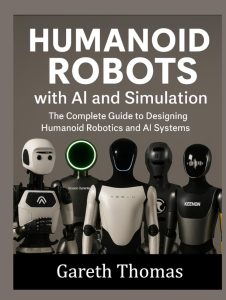Gemini 3 Revelation Unveils Google AGI Strategy and Initiates Antigravity Technology

The Launch of Gemini 3: A New Era for Google and AI
Google’s rollout of Gemini 3 was anything but traditional. Rather than the typical benchmarking and polished demos that accompany a new model release, the announcement felt like a carefully orchestrated unveiling of a grand strategy centered around Artificial General Intelligence (AGI). With a sudden surge in activity, experts and enthusiasts alike began to question what Google was truly revealing.
More Than a Model Release
The initial buzz surrounding Gemini 3 revolved around its performance metrics—speed, accuracy, and creativity. However, the deeper implications of its launch reveal a strategic move by Google to showcase a more significant plan: a full stack activation of AGI technology. From the instant Gemini 3 went live, it disrupted the existing timelines in the AI community. Leaderboard screenshots flooded social media, and mentions of exceptional performance in various benchmarks began to surface.
One noteworthy aspect of Gemini 3 is the impressive performance from Deepthink, Google’s reasoning model. Unlike conventional models that often merely guess answers, Deepthink utilizes structured task trees, breaking down problems step-by-step. This layered reasoning process allows it to consistently excel in complex reasoning tests.
Industry Reactions
The reactions from prominent figures like Sam Altman and Elon Musk highlight the significance of Gemini 3. When industry leaders publicly acknowledge each other’s work, it often signifies a shift in competitive dynamics. Both Altman and Musk’s sudden endorsements of Google’s advancements illustrate a growing pressure in the AI landscape. This isn’t just about model performance; it implies that Google has made a pivotal move that could shift the power balance.
Integrating Gemini 3 into Search
A critical and often underestimated aspect of Gemini 3’s rollout is its immediate integration into Google Search. Historically, Google has been cautious about introducing new, sophisticated models to its most vital product, which serves a global user base. By embedding Gemini 3 directly into the search infrastructure from day one, Google is signaling confidence in its capabilities and its intent to redefine how users interact with information.
The Need for Adaptation
The rapid growth of AI is fundamentally transforming job markets and professional landscapes. Many remain oblivious to these changes until they are directly confronted by them. In contrast to a Black Friday shopping frenzy—where individuals often spend impulsively—forward-thinking individuals are preparing for the future by gaining new skills. This is particularly relevant given the rising demand for expertise in AI and technology.
To support this transition, organizations like Outskill are providing essential training through workshops. Their upcoming two-day live AI mastermind workshop will equip attendees with valuable skills in AI, covering everything from workflow automation to the creation of AI agents.
Understanding the Core of Gemini 3
At its essence, Gemini 3 serves as a sophisticated reasoning engine, designed to grasp intricate intents and consistently follow logical chains. It processes data in a coherent manner, treating diverse inputs—text, images, or videos—not as isolated elements but as part of a unified framework. This multimodal approach enhances its ability to maintain context, especially with lengthy documents and mixed data types.
One impressive upgrade is the model’s video reasoning capability. Gemini 3 can process fast-motion videos while tracking objects seamlessly, maintaining consistency even during chaotic scenes. This advancement holds significant promise for applications in robotics, autonomous driving, and sports analytics—fields that require real-time comprehension—not mere frame-by-frame assessments.
Redefining Development Workflows
The introduction of Gemini 3 isn’t limited to enhancements in reasoning and multimedia handling. On the coding front, it stands out for its ability to manage complex workflows and perform multi-file tasks without succumbing to errors or hallucinated outputs. This positions Gemini 3 as a potential game-changer for developers.
The release of features like Anti-Gravity—a developer-oriented environment—serves as a testing ground for creating next-gen agents capable of executing structured tasks efficiently. By offering developers a comprehensive interface, Gemini 3 allows them to engage in trouble-shooting and project planning while maintaining focus on overarching objectives.
The Larger Ecosystem
The grand strategy behind Gemini 3 reflects a larger integration effort within Google as it aligns its vast resources and products. While OpenAI operates through partnerships, Google benefits from owning its entire ecosystem—encompassing the hardware, software, and applications that interact daily with billions of users. This level of integration not only enhances Gemini 3’s applicability but solidifies Google’s position in the market.
Google’s silent construction of a distributed AGI ecosystem is noteworthy. As more Google products become interconnected, each platform—be it Search, Android, or YouTube—becomes a functional part of a larger AGI network. Imagine a world where every app and device seamlessly interacts with users through advanced reasoning and autonomous functionalities.
The Future of AGI
Emerging from lesser-known projects, Google is reportedly working on Alpha Assist, aimed at developing a general-purpose assistant capable of autonomously handling full tasks. The initial features of Gemini 3 already reflect this ambition. The model not only processes information but learns to operate software likewise to humans—albeit at far greater speeds.
In summary, 2023 marks a pivotal year as Google launches Gemini 3. Beyond mere technical specifications, the model represents a future where AGI seamlessly interacts with numerous applications, providing users with an unprecedented intelligence infrastructure.
If Google achieves its goals, we could unknowingly start utilizing a form of AGI embedded in our everyday tools and interactions. What are your thoughts? Are we on the brink of a new technological era? Join the conversation by commenting below!
#Shocking #Gemini #Drop #Exposes #Google #AGI #Masterplan #Activates #Antigravity
Thanks for reaching. Please let us know your thoughts and ideas in the comment section.
Source link






👉 Grab your free seat to the 2-Day AI Mastermind: https://link.outskill.com/AIREVONOV4
Cool video, don’t forget the upcoming revamped Siri being powered by a Gemini model as well.
They should use Gemini 3 to figure out where the AI revenue is gonna come from
Sure wish I'd saved my Pro 2.5 chats before accepting 3.0 invite. All my previous 100 hrs of work is gone!
Nice!
Google probably has the closest publicly known stack to a pseudo-AGI like system, but none of this will in any way result in AGI in the human intelligence sense of it. This is working towards a competent omnitool stack for automation, which is great, if we were, as a society, expecting the rich to automate things for our benefit and free humanity from labor in the long run.
Instead we are gonna intern with these AIs starting next year as collaborators to work more efficiently for 5-10 years, and then most humans get discarded by the rich and robots enslave us if we don't change the system massively between now and then. So it's great progress, awesome, AI is improving faster than expected, but it does mean our window to stop this trajectory is shrinking.
I already released the framework last week. If they use that.. the rest are toast beyond imagination. Good work ,keep going.
Even if they mimic it…
If Gemini 2.5 managed to find a better way to do GPU calculations and some math stuff, and then GPT 5 found a new way to do some fancy math thingy, then how long until gemini 3 finds something new? Like a better algorithm to GPUs and stuff?
We're already using it. Most folk don't even have the slightest clue how deep we're in it already.
I gave it a good try but GPT 5.1 solves complex coding tasks more efficiently. For example one task i gave Gemini, it provided me with a DRY violation, repeating same code in 2 places. I gave GPT 5.1 the same prompt and it created a shared utility. I've seen Gemini make multiple surprisingly nooby mistakes.
If you watch this video don't watch the one he posted yesterday 😂
I took the offer. $1.99 for three months. I'm nobody so we'll see if it's useful to me.
I love how we benefit from the AI race. If no competition exist, OpenAI would be at gpt4.0 turbo charging $200 per license.
Sommet 4.5 continues to be the best Coding pal
Man this one is worth switching to Google from open ai.
It still can't solve the Riemann hypothesis(or any other open mathematics problem like it). In fact, if you ask it, it just says "I can only solve mathematics that has already been solved."
Not AGI! Not even close.
While developing a web application for a natural surround sound system, I implemented a spectrogram based on musiclab's Spectrogram, to explore acoustic analysis. Among the SOTA AI models, interestingly, gemini-2.5-pro was the only one capable of refactoring it to JavaScript; and also interestingly, Claude Code 4.5 was the only one capable of correcting the frequency mapping of the plotted mesh to the logarithmic scale on its axis. This was done using both in CLI mode within the IDE. Now, the newest Antigravity IDE recognizes my dev_rules folder (and the spec-based development methodology, incorporating Martinelli's strategy) and updated it with the new capabilities of Gemini 3.0. Likewise, Claude Code (Sonnet 4.5) explored collaboration mechanisms between CLI agents with Antigravity's "Cascade" (exactly like Windsurf), thus updating the project's development methodology and rules in sync. Satisfactory first impression.
Yet another outstanding AI update!! Thank you!!